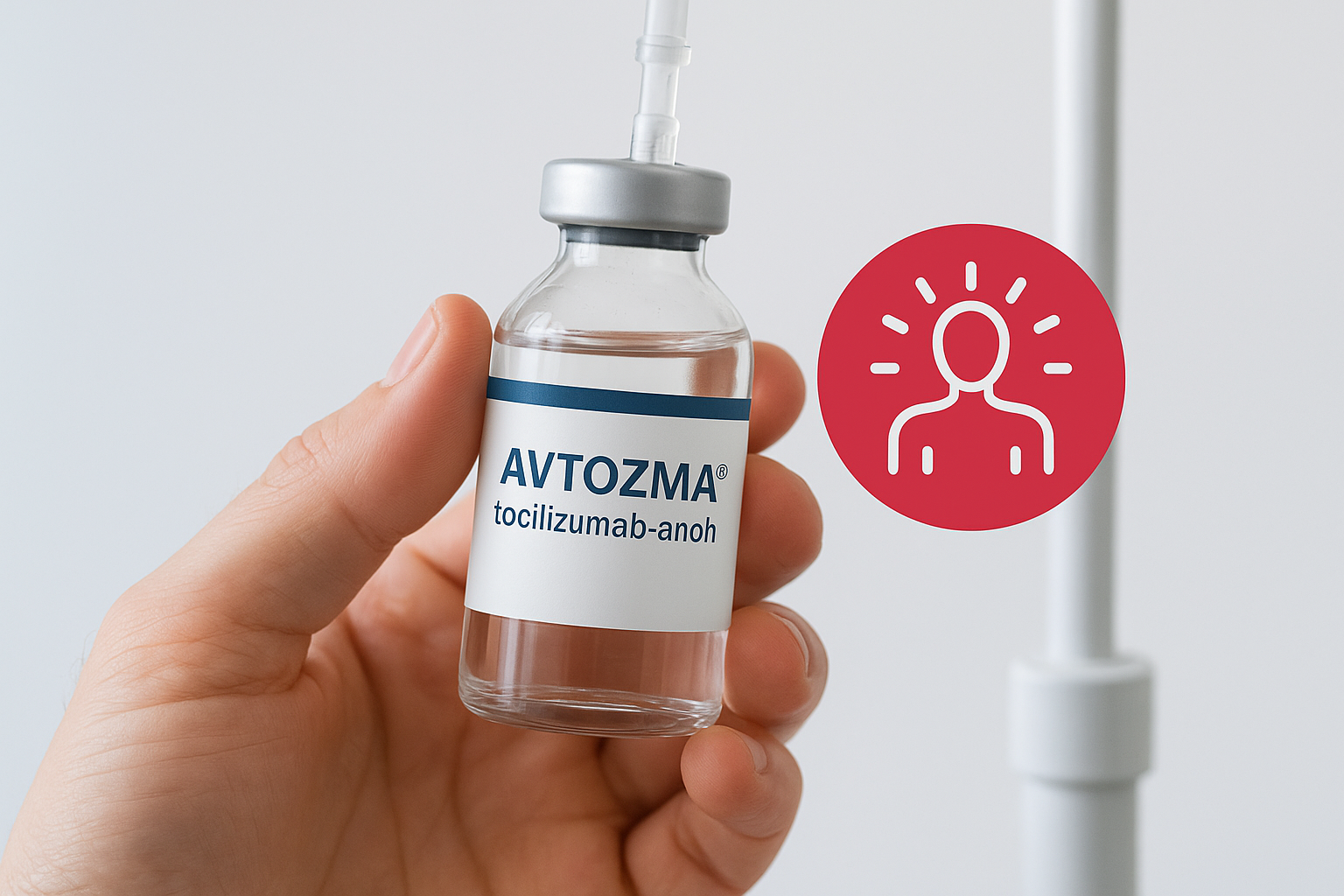
On August 6, 2025, the U.S. Food and Drug Administration (FDA) granted an expanded indication for AVTOZMA® (tocilizumab-anoh), a biosimilar to ACTEMRA® (tocilizumab), allowing its intravenous (IV) formulation to be used for the treatment of cytokine release syndrome (CRS) in adult and pediatric patients aged 2 years and older. This approval marks a significant milestone for Celltrion, Inc., the South Korea-based biopharmaceutical company behind AVTOZMA, as it now aligns the biosimilar with all FDA-approved indications for the reference product’s IV form. Initially approved in January 2025 for conditions such as moderate to severe rheumatoid arthritis (RA) in adults who have had an inadequate response to disease-modifying antirheumatic drugs (DMARDs), giant cell arteritis (GCA) in adults, polyarticular juvenile idiopathic arthritis (pJIA) and systemic juvenile idiopathic arthritis (sJIA) in patients 2 years and older, and hospitalized adults with COVID-19 requiring supplemental oxygen or mechanical ventilation, this expansion addresses a critical need in managing CRS.
CRS is a potentially life-threatening systemic inflammatory response triggered by excessive immune activation, leading to a massive release of cytokines into the bloodstream. This “cytokine storm” can cause widespread inflammation, damaging healthy tissues and organs, with symptoms ranging from mild flu-like manifestations (fever, fatigue, headache) to severe complications including hypotension, respiratory distress, and multi-organ failure. CRS is commonly observed in patients undergoing chimeric antigen receptor (CAR) T-cell therapies for certain cancers, where rapid immune cell proliferation exacerbates the condition.
AVTOZMA functions as a recombinant humanized monoclonal antibody and interleukin-6 (IL-6) receptor antagonist, inhibiting the signaling pathway that amplifies inflammation. Administered intravenously, it provides rapid intervention for severe or life-threatening CRS cases. The IV formulation will become available in the U.S. market on August 31, 2025, following a patent settlement with Genentech, while details on the subcutaneous version’s launch remain undisclosed.
Safety profiles highlight important risks, including serious infections (e.g., tuberculosis, bacterial, fungal, or viral) that may require hospitalization or result in death, particularly when used with other immunosuppressants. Additional warnings cover gastrointestinal perforations (especially in patients with diverticulitis history), hepatotoxicity with potential liver enzyme elevations, laboratory changes (e.g., neutropenia, thrombocytopenia), immunosuppression increasing malignancy risk, hypersensitivity reactions, and demyelinating disorders. Contraindications include known hypersensitivity to tocilizumab or active hepatic disease with ALT/AST >1.5 times upper normal limit. Common adverse reactions (incidence ≥5%) encompass upper respiratory tract infections, nasopharyngitis, headache, hypertension, elevated ALT, and injection site reactions. Live vaccines are not recommended during treatment.
Celltrion, a global leader in biosimilars with seven FDA-approved products, emphasizes this approval’s role in enhancing access to high-quality, cost-effective biologics. Operating in over 110 countries, the company continues to innovate in biopharmaceuticals, focusing on autoimmune diseases, oncology, and infectious conditions. Forward-looking statements note potential risks affecting future outcomes, as detailed in regulatory filings. This development underscores the growing adoption of biosimilars in critical care, potentially reducing treatment costs while maintaining efficacy and safety standards comparable to originator drugs.
Source: https://www.celltrion.com/en-us/company/media-center/press-release/4098

